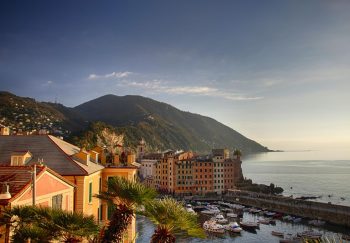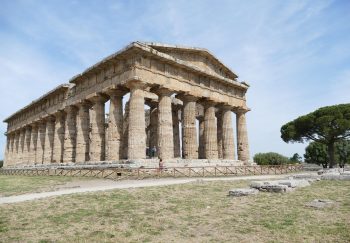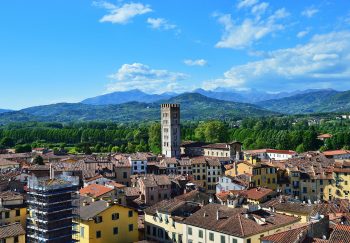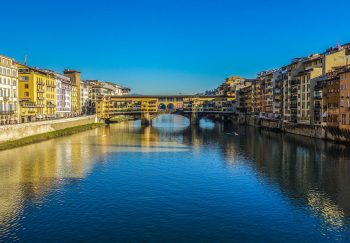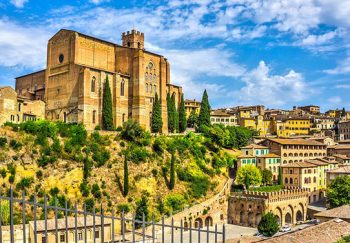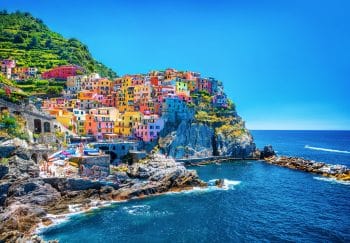Researching and booking accommodations for your travels is not the most fun thing on the list. You’ll feel frustrated when you discover that the hotel star rating system you thought you knew is completely different in Italy.
It’s true that hotel stars in Italy may not mean the same thing in other countries. However, it doesn’t have be difficult to understand. I’m here for help. Let’s look at Italy’s hotel rating system to help you .
Continue reading: Where to Stay in Italy: What Do These Accommodation Terms Mean
Hotels in Italy: Star Ratings
Italy’s hotels are ranked according to a star system. This is something that you probably know. You are probably familiar with the range: 1 star at one end, 5 stars at another.
The government regulates the stars that are given to each Italian property, unlike in the United States or other countries. These criteria include the size and proximity of the reception desk to the guest rooms, as well as whether the building has an elevator. The guest rooms are also important, such as whether they have an en-suite bathroom or how many towels each guest is provided with.
Furthermore, not all criteria for the hotel rating list are set at national level. They are determined by each region. This means that the criteria a Venetian hotel must follow to earn 3 stars is not the same as the one that a 3-star Neapolitan property must comply with. While it’s possible for them to be similar, they may not be exactly the same.
Of course, the star system for rating hotels cannot include subjective things like the beauty or comfort of the beds.
Things to consider when booking hotels in Italy
It’s not that the star rating system used for Italian hotels is ineffective. If you book a 4-, 5-star or 5-star hotel, you will be booking a more luxurious space than a 1- or 2-star one. But you shouldn’t solely rely on the stars to judge how good a hotel is. For example, there are many 1- and 2-star hotels with very few stars.
It is common for hotels to be located in historic buildings. Some rooms, especially those that are small, were made more spacious by adding an en-suite bathroom. This was not the case in every palazzo at the time. Even though rooms can be small and luxurious, they will not prevent an Italian hotel from earning more stars.
Elevators are also a more recent invention than most of the buildings they were installed. They can sometimes be small, if any, because they are so modern. If you are looking for large rooms in America and modern elevators you will need to search for hotels in newer buildings. These may be located outside of the historic centre of town and most likely in 4- or 5 star chains.
These are the most common amenities that travelers look for in a hotel, along with how many stars it takes get them in Italy.
- Heating and Air Conditioning: All star hotels require that their rooms be heated, unless they close their doors in winter. If guests are not out sightseeing during the day, some hotels may only activate heat in evenings. Only 4- and 5-star hotels require air conditioning.
- Bathrooms: Hotels of 4 or 5 Stars will have en-suite bathrooms. Many 3-star hotels will also have one. The only requirement for a 1-star hotel is that at least one bathroom be available for each three rooms, or six guests.
- Room Cleaning: All star hotels must clean their rooms at least once per day, unless the guests request otherwise.
- Towel and Sheet Changes: All star hotels must change their towels and linens at least once every three days. Most hotels with 4-5 stars change their linens daily, unless guests request otherwise.
- 24 Hour Reception: All star hotels must have a 24-hour reception. It should be open at least 12 hours a day. Even though 5-star hotels do not require 24-hour reception, many properties of 4- or 5-star status will provide it.
- Breakfast: It is quite common for hotels with 3 or more stars to include breakfast. Although it is not required for hotels with 1 or 2 stars, some hotels offer breakfast for an additional fee.
For me, the bottom line is that I pay more attention when looking for a place to stay in Italy to its location and the actual amenities it offers, as well as pictures on the website, than how many stars it has.
I prefer 2- and 3-star hotels. I feel more at home in an old building with small rooms and character, in a great location with 2 stars than in a room that is smaller but less sterile.
You may have different mileage so you can trust your gut instincts when you book your accommodation.


